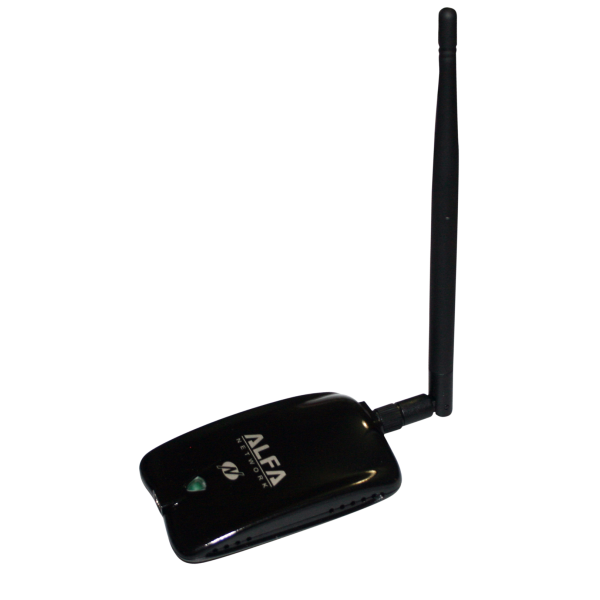It's not safe on the streets... especially for your 3DS!
Exploring a new attack surface on the 3DS
@MrNbaYohState of 3DS hacking
- many userland exploits, patched kernel flaws and lots of documentation
- hardware keyscrambler broken (32c3)
- bootroms dumped (33c3)
- derive secret AES keys as a result
- permanent unpatchable bootROM exploit (33c3 & 33.5c3)
What is left unexplored?
Could we use these keys to attack features that were protected until then?
StreetPass
What is StreetPass ?

- local wireless communication feature
- automatically communicates with nearby 3DS systems
- allows applications to exchange data (custom levels, messages, Miis, ...)
Hacker point of view...
How does it work?
What to attack?
StreetPass Protocol?
Nobody really knows how it works...- a bit of documentation on the pairing sequence
- never been successfully reproduced...
- unknown encrypted protocol operating according to IEEE 802.11 standards (use AES keyslot 0x2E)
We can get this key nowadays... let's reverse the protocol!
Let's dive in!
Equipment & Tools

|
Two hacked 3DS running Luma3DS ❤
|

|
Alfa Network AWUS036NHA
|
|
|
To sniff and analyze packets...❤ |


|
IDA/Ghidra Whichever you like to reverse engineer CECD... |
Pairing
Pairing Sequence
Pairing ✓
- netlink protocol to communicate with drivers (libnl)
- use nl80211 to send/recv probe requests/responses
- everything else is handled by the driver :)
Yay! The 3DS starts sending encrypted data!
Encryption
Session Key Derivation
Decryption ✓
- uses AES-CCMP
- nl80211 lets you register CCMP keys
- receive and send encrypted packets using raw sockets and send/recv syscalls :)

Reversing the Protocol
Early Analysis
59 59 30 00 AD DE AF BE 00 00 00 00 00 00 00 00
0C 10 B8 38 00 00 00 00
59 59 68 00 AD DE AF BE 00 00 00 00 00 00 00 00
0C 38 B8 38 00 00 00 00 63 63 00 00 43 00 00 00
00 00 00 00 10 00 00 00 1B 00 10 00 1A 80 0F 00
FF FF FF FF 74 54 12 00
59 59 56 00 AD DE AF BE 00 00 00 00 00 00 00 00
0C 38 B8 38 00 00 00 00 63 63 FF FF 12 00 00 00
00 00 00 00 16 00 00 00 11 0A 00 05 16 00 30 00
02 08 00 00 F0 08 A3 E1 84 BD C0 05 BF 49
| header | data |
| header magic value | data magic value |
Two Protocols!
Not official names obviously...-
StreetPass Transmission Control Protocol (SPTCP)
- quite similar to TCP but for local communication
- ensures reliability
- handles data segmentation
-
StreetPass Message Transfer Protocol (SPMTP)
- sends packets over SPTCP
- handles exchanging streetpass messages
SPTCP
SPTCP Header & Flags
59 59 30 00 AD DE AF BE 00 00 00 00 00 00 00 00
0C 10 B8 38 00 00 00 00
| magic 0x5959 |
constants 0xdead 0xbeaf |
flags frame types |
Almost the same as TCP flags...
Once you know that, it's fairly easy to build the state diagram and understand the protocol...
ACK|PSH: 0 1 1 0 0 0 = 0x18
SYN|ACK: 0 1 0 0 1 0 = 0x12
| ACK | PSH | RST | SYN | FIN |
SPTCP State Diagram
Typical SPTCP Exchange
SPTCP Security
Hey it seems to be okay.- found no deadly bug
- maybe some minor unexploitable ones
- attack surface is not that large
- SPMTP is much more interesting!
SPMTP
Two Types of Packets
There are two different magic values!
63 63 00 00 43 00 00 00 00 00 00 00 10 00 00 00
1B 00 10 00 1A 80 0F 00 FF FF FF FF 74 54 12 00
61 61 00 00 80 30 00 00 00 16 05 00 00 00 00 00
01 00 00 00 60 60 00 00 6C 30 00 00 48 0D 00 00
04 23 00 00 00 16 05 00 00 00 00 00 00 00 00 00
00 00 00 00 12 1D AA 64 90 76 5A CB 00 00 ...
| info packet share information like part of a handshake |
message box packet contains messages for a specific application! |
we reached application data!
Info Packets
A bunch of data sent here...- fixed size data
- nothing fancy...
- Friend Code, MAC address, date & time, etc.
- variable size data
- application list, message box metadata list, etc.
- much more interesting! any buffer overflow in sight?
Box Metadata List Parsing
Where is the deadly bug here?
void copy_box_info_list(box_info_list* dst, box_info_list* src)
{
memcpy(dst, src, sizeof(box_info_list_header));
if(dst->header.magic == 0x6565)
{
dst->box_count = dst->header.count;
for(int i = 0; i < dst->box_count; i++)
memcpy(&dst->box_info[i], &src->box_info[i],
sizeof(box_info_entry));
}
}
Is it exploitable?
Box Metadata List Parsing

How do we exploit it?
| NX Bit | Stack Cookie | ASLR |
- embed a small ROP-chain in the box list
- send another one in a packet
- stack-pivot to the second chain
RCE in cecd ✓
This one was easy... let's move on!
Message Box Packets
- list of StreetPass messages (max 64)
- stored in temporary files ("TMP_XX")
- let's call them "TMP Box"
- parsed once the communication is over
Let's take a look at that parser!
TMP Box File Loading
int load_TMP_file(tmp_box* dst, tmp_file* file_buffer,
size_t file_size) {
...
message* current_msg = file_buffer->messages;
while(dst->header.msg_count > i && end_of_file > current_msg) {
uint32_t msg_size = message_get_size(current_msg);
dst->msg_pointers[i] = current_msg;
dst->msg_sizes[i] = msg_size;
current_msg += msg_size;
i++;
glob_tmp_box_alloc_mode = POINTER_MODE; // POINTER_MODE = 0
}
dst->header.msg_count = i;
return 0;
}
 They do not check the number of messages in the box!
They do not check the number of messages in the box!TMP Box Overflow
What can we do?
int load_TMP_file(tmp_box* dst, tmp_file* file_buffer,
size_t file_size) {
...
message* current_msg = file_buffer->messages;
while(dst->header.msg_count > i && end_of_file > current_msg) {
uint32_t msg_size = message_get_size(current_msg);
dst->msg_pointers[i] = current_msg;
dst->msg_sizes[i] = msg_size;
current_msg += msg_size;
i++;
glob_tmp_box_alloc_mode = POINTER_MODE; // POINTER_MODE = 0
}
dst->header.msg_count = i;
return 0;
}
We can totally control only one 32-bit value on the stack...
What to overwrite?
The only interesting one you can overwrite without crashing...
void parse_all_TMP() {
[...]
tmp_box tmp_box;
critical_section* lock; // overwritten by overflow in parse_TMP_file!
[...]
for(int i = 0; i < TMP_file_count; i++) {
enter_critical_section(&lock, &global_lock); // restore lock value!
file_buffer = malloc(TMP_file_size[i]);
[...] // file reading, etc.
parse_TMP_file(&tmp_box, file_buffer, TMP_file_size[i]);
write_messages_from_tmp_box(...);
[...] // deleting file, etc.
free_tmp_box(tmp_box);
leave_critical_section(&lock); // lock = arbitrary value!
}
[...]
}
Critical Section?
void leave_critical_section(critical_section** lock_ptr) {
*lock_ptr->count--;
[...] // actual unlocking code...
}
Allocation Modes?
void free_tmp_box(tmp_box* box) {
if(box->header.msg_count && glob_tmp_box_alloc_mode != POINTER_MODE){
for(int i = 0; i < box->header.msg_count; i++) {
if(box->msg_pointers[i]) {
free(box->msg_pointers[i]);
box->msg_pointers[i] = NULL;
}
}
[...]
}
}
We fully control data pointed by msg_pointers...
We can make it free some crafted fake chunks!
We have a problem...
...the allocation mode is restored when loading a TMP file!
int load_TMP_file(tmp_box* dst, tmp_file* file_buffer,
size_t file_size) {
[...]
memcpy(dst, file_buffer, sizeof(tmp_box_header)); // copy header
if(dst->header.size != file_size) // if invalid size
return 0xC8E1086A; // return error
while(dst->header.msg_count > i && end_of_file > current_msg) {
[...]
glob_tmp_box_alloc_mode = POINTER_MODE;
}
[...]
}
Whatever...
void parse_all_TMP() {
[...]
tmp_box tmp_box;
critical_section* lock;
[...]
for(int i = 0; i < TMP_file_count; i++) {
enter_critical_section(&lock, &global_lock);
file_buffer = malloc(TMP_file_size[i]);
[...] // file reading, etc.
parse_TMP_file(&tmp_box, file_buffer, TMP_file_size[i]);
write_messages_from_tmp_box(...);
[...] // deleting file, etc.
free_tmp_box(tmp_box);
leave_critical_section(&lock);
}
[...]
}
What can we do so far?
- send a first TMP box
- overwrite the lock & decrement the alloc mode
- send a second TMP box (invalid header)
- parser returns early so msg_pointers is not updated
- all pointers in msg_pointers are freed
Pointers in msg_pointers still point to the freed chunk of the first TMP file...
...which gets reallocated for the second TMP file!
So it frees pointers to our controlled buffer!
What do we do next?
We can craft fake heap chunks which will get freed...- the 3DS heap is insecure
- classic unsafe-unlink
- one arbitrary write for each chunk you free
- rewrite the heap free-list head pointer
- make it point to the stack
- next malloc call will return a pointer to the stack!
The third TMP file buffer will be allocated on the stack!
Exploit scenario
Second RCE in CECD ✓
This one was trickier!
Again?
There is another one in the message parser...which is a SDK function...
so any application using StreetPass is vulnerable!
This problem is left as an exercise for the reader...
Third RCE in CECD ✓
Code execution in any application using StreetPass ✓Persistent backdoor in CECD ✓
Post-Exploitation
Sandbox escape
CECD does not have much privileges... we want more!Taking over the home menu
OutBox Index Reader
Another SDK vulnerability!
size_t index_file_size;
CECD_open_file(..., &size); //done through IPC
[...]
void* index_buffer = malloc(0x800); //what if size is > 0x800?
[...]
CECD_read_file(..., index_buffer, size, ...); //done through IPC
Enough to take over the home menu!
...and any application that uses this function...
Escape to the home menu ✓
| Access to the internet | ✓ |
| Access to the SD card | ✓ |
| Drawing on screen | ✓ |
| ... |
Taking over the ARM11 kernel
IPC: Static Buffers
How does one send data from a sender process to a receiver process?- for regular large buffers
- map parts of the sender's memory into the receiver's
- for regular small buffers
- receiver can register some static buffers
- copy from the sender's buffer to the receiver's buffer done by the ARM11 kernel
- for buffers sent to the ARM9 (over PXI)
- ARM11 kernel writes pairs of {physical address, size} to static buffers for the ARM9 side to understand
- copy of data done by Process9 (ARM9 side) using the given physical address
LazyPixie
Vulnerability found by @TuxSH!How does the kernel handle the "PXI buffers" case?
- check alignment of the destination static buffer
- check size of the destination static buffer
- check permissions for the source buffer
- check permissions for the destination buffer
- cache operations, etc.
- copy metadata to the destination static buffer
The destination can be an arbitrary physical address!
Just overwrite the MMU table and make the kernel RWX... ( ͡° ͜ʖ ͡°)
ARM11 Kernel has fallen!
... but we still want more!Road to full system control
...or why pwning CECD was the best idea ever!safehax
- race condition in firmware header parsing
- take over ARM9 if you control ARM11 kernel
- fixed in version 9.5.0 for regular (native) firmware
- remains unfixed in safe mode firmware
- mitigated in version 11.3.0 and 11.4.0
Mitigated? Not Patched?

How do they prevent it?
safehax "Mitigation"
- add a global boolean flag on ARM9 side
- set to 1 ⇒ panics when trying to launch safe mode firmware
- flag set to 1 when applications are launched
- except for home menu and system modules
We can get RCE in cecd without launching any application...
...with a ARM11 kernel exploit we can leverage safehax!
Full control RCE ✓
without user interaction ✓
on any firmware version ✓
at the time this was developed... fixed on version 11.12!Demo Time!
Some Takeaways
- you'd better check your return values
- don't hide behind cryptography
- your encryption might get broken faster than you think
- assessing hard-to-reach features is arduous but can lead to amazing (yet dangerous) results!
- fix you flaws
- don't implement poor mitigations...
- there're still things to do on 3DS!
- amazing system to work on
- check out the documentation on 3DBrew!
Acknowledgements
- @TuxSH: LazyPixie, joint effort on leveraging safehax
- @hedgeberg: recurrent support, help with so many things it would not fit in the slide...
- 3DBrew contributors: amazing documentation
- Nintendo: allowing me to talk about these great things and patching the flaws
Contact
I'm a first year master's degree student looking for a great research internship!| Twitter: | @MrNbaYoh |
| Email: | mrnbayoh(at)gmail(dot)com |